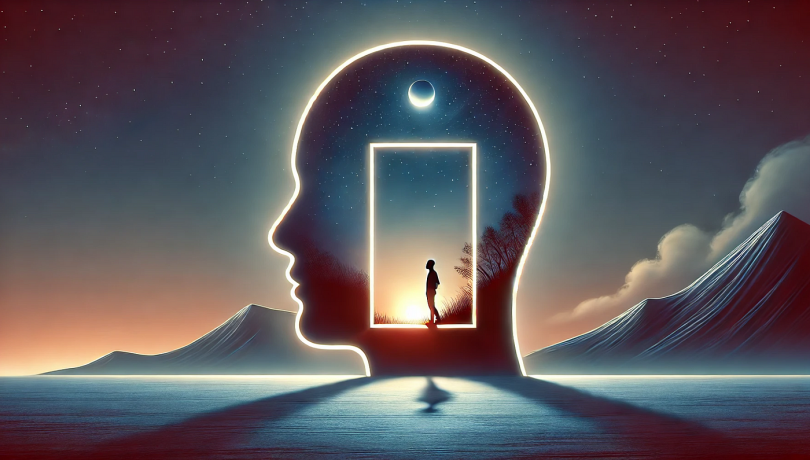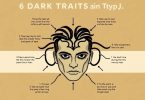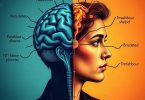Today, I want to talk to you about attachment as an INFJ. Attachment StylesAttachment is one of those things that a lot of people talk about on the internet. There are different styles of attachment and so on, but we don’t really need to go into that. If you want to learn more about what kinds of attachments there aresecure attachment, avoidant attachment, anxious attachment—there’s plenty of material online.
The INFJ Perspective on Attachment
What attachment means as an INFJ because the thing I know for sure is that if we don’t tackle our way of attaching to other people, we’re always going to feel lonely. We’re always going to feel disconnected, and we’re always going to feel like something is missing from our life.
Resources for INFJs
Before we get started and get into the details, I want to remind you, if you haven’t done this so far, to download the free poster on the formula to an INFJ Epic Life. And if you want to take it to the next level, get the INFJ Epic Life Audio Guide. There, you will learn how you, as an INFJ, can start tackling your potential, how you can bring what is in your mind to reality, and feel like you’re continuously growing. It’s tailored to INFJs. There are hundreds of INFJs who’ve gone through this program and continuously report back to me how valuable the audio guide has been for them. So, everything you need to do in order to start tackling your INFJ Epic Life is to check out the link in the description and get started today.
The Ease of INFJ Attachment
For us as INFJs, it’s really easy to get attached. And I’m not saying that we’re going to get attached to a lot of people. It’s actually the reason that we don’t want to attach to people at all. We very often keep people at a distance, psychologically speaking. One of the biggest reasons for this is that people mainly are not healed. Most people you’ll meet in your life are not healed. Most of us are not completely healed, but other people who have never really worked through personal development, who are probably not that connected to their subconscious, are very often healed even less. They have things going on in their life that make them unhappy and cause them to project things onto other people.
The Impact of Childhood Dynamics
Guess what happens when a little INFJ child comes into their lives? This doesn’t have to be a parent of yours when you were a child. It is absolutely every single person you meet. And as children, this dynamic is very, very prominent in our life because our second function is extroverted feeling, meaning we really pick up how people are feeling, we pick up their sense of seeing the world, and we pick up what they want us to be in order to feel good about themselves. That is what we subconsciously do. So, imagine you have a person who has some things going on, they’re not healthy, they’re not happy. Our go-to response, particularly as children, is to become a version of ourselves that doesn’t trigger the other person. Why? Because the thing we as children need the most is to be attached to somebody. As children, we absolutely need this in order to survive. We don’t have the capacity to survive on our own. Even psychologically speaking, we need somebody who’s going to protect us. So, we are going to make sure that we are going to stay connected to another person.
The Cost of Attachment for INFJs
But what does attachment really mean in that situation? For us INFJs, it means the following: We have chosen attachment over authenticity. Who we really are, our hero function, our sense of the world, is based on introverted intuition. And introverted intuition is all about freedom. It’s all about being able to see the world. We want to see it, to see patterns, to just experience life as it is supposed to be. It’s not just our first function, of course, but it’s a combination of all of that. But then this other need comes into our life. We have to be connected to another person. And if that person isn’t healed, like 99.9% of all people aren’t, what are we going to do? We are going to give up our authenticity over our attachment.
The Dilemma of Choosing Authenticity
So, how does that look? It looks like we’re dimming our light. It looks like we are pretending to be somebody else. It looks like we show up as chameleons, and all our life we’ve been conditioned this way. This applies to all children to some extent, but as INFJs, this particular dynamic is very evident because our authenticity triggers people. Introverted intuition is a very triggering function because we show up as mirrors for other people. So, if we would show up as our most authentic self possible, the people around us who are not healed, and as I said, those are most people, are going to get triggered by it.
The Impact of Childhood Conditioning
As children, if we have learned that every single time we try to be ourselves, we’re going to get feedback that says, “You are not lovable. I don’t like you this way. Change.” What are we going to do? We’re not going to question it. We’re not going to understand the bigger picture because we’re children. What we’re going to understand is that the person is suffering. I’m going to adapt myself so they feel good in the moment because subconsciously there’s a big fear attached to this, and that is abandonment. And as children, this fear is super, super developed. It makes sense, right?
Recognizing the Pattern
This topic isn’t something I came up with. Attachment versus authenticity has been something in literature for many, many years. But I was aware of this before I knew I was an INFJ. I was aware of this before I knew that I had that issue. I listened to this and I read this, and I thought, “Oh yeah, that totally makes sense for other people. I don’t have that problem.” That’s what I thought. And here’s the thing that made a difference for me. I understood that choosing myself would mean that I would be alone forever. That’s how it felt. That’s how deep that abandonment wound was. I was just pushed to such a point. I was in so much pain trying to adapt myself in order to be accepted by another person. That person had very strong narcissistic tendencies, so it pushed this even more and more. I had to come to a place where I said, “I cannot continue to adapt myself.”
The Fear of Authenticity
And what I thought at that moment is, “I’m the worst human being on earth because I’m going to hurt that person by being myself.” If you have been conditioned your entire life to believe that if you are being yourself, you’re hurting other people because that’s what your mind needs to tell itself. It is not that well-developed to know that, “Oh, the reason why I don’t want to do that is because I’m going to feel abandoned. But that’s just something that my mind thinks. I’m not really going to be abandoned.” We tell ourselves a story that makes us stay connected to people. You know, that’s the whole thing of if you have somebody who’s being verbally abusive to you, in your mind, it’s not their fault. They’re suffering, they’re good people. And I was the one triggering them. This seems like an extreme example in theory, but in reality, I was thinking exactly that. And so many INFJs that I’ve talked to have gone through the same thing.
Embracing Authenticity
The option of being myself, not being there for other people, not showing up in order to do something for other people to be of value for them, particularly if I would show up and make sure that I’m my happiest, that I’m just free-floating and enjoying life, nobody would love me. That is not a possibility. But that is exactly what we need to conquer because it is a limiting belief. It’s not the truth. You can choose authenticity over attachment. And that will not mean that you won’t be able to create healthy connections with other people. It also doesn’t mean that you can’t be of value to other people while you’re doing something for them. It’s just that the first main thing has to be authenticity.
The Challenge of Authenticity
It’s actually one of the topics we tackle in bootcamp as well because the way we show up for people has to be based on, “I show up how I want to see myself. This is who I am. I want to be of value, I want to be of service, but not at the expense of me being myself, of me being free.” It’s a very scary step. And I can tell you from personal experience, you will have an effect on other people, an effect you won’t like. People will get triggered, people will back off from you. People will have reactions towards you, particularly people where you already feel like you’re walking on eggshells. And you say, “Okay, I’m already doing my best not to offend the other person.” And they still get triggered by me. They still attack me. What’s going to happen if I just be myself all the time? They’re going to get really triggered. But that’s exactly the solution, that’s the way out.
The Benefits of Authenticity
Once people understand that you don’t have this internal conflict anymore of, “What should I do? I want people to like me for who I am, but I also want to be of service because I think that’s how people are going to like me.” When you don’t have that debate anymore, when it’s clear as day that first off, you are going to be your authentic self as much as you possibly can in that moment, and as a second step, you are going to be of service, you are going to try to help people, you are going to try to inspire them, and so on. There is a part of you that is not up for debate. And when people see that there is nothing to discuss with you when it comes to who you are and how you see the world and what makes you feel like you are a good person and you’re living in integrity and that’s not something that another person can change your mind on, then people stop.
The Shift in Relationships
They then understand that you are not going to talk to them on the same level that you used to talk to them. You are a different person. And then it’s on them to decide. And it’s their prerogative, by the way, to decide, “Do I want to stay in this relationship, in this friendship, and whatever dynamic you have with another person that is new and that is giving me less than I was getting before. But now it’s based on, ‘Oh, I get to see that person be fully who they are.’ And there is so much value through that as well because it inspires me to choose myself as well.” Or is that a truth that I cannot handle?
The Power of Truth
There’s a great quote that is circling around the internet lately. Not that it’s new, but now it’s been talked about a little bit more. I looked it up just so I don’t say it wrong. So, “A person’s ability to grow is directly related to the amount of truth they can accept about themselves.” And being around an INFJ who’s authentically themselves is doing exactly that. We’re being a mirror. We’re not being a mirror to what another person wants to see, but we’re being a mirror to who that person is. That’s just how we show up in the world. That’s how most people really see us. The more healed we are, the more authentic we show up. And so, the more you stand in your own truth, the more people are confronted with their own truth. Some people can sit in that truth and they’re able to feel it and heal it and grow from it, and other people cannot. And again, it’s a spectrum. It’s not like one person is totally able to do that and another person is not.
The Price of Authenticity
Some people will distance themselves, some people will get closer to you, psychologically speaking, and you can still have a great relationship with all people. It’s just something that we have to come to terms with, that if we want to be authentically ourselves, this is the price we have to pay. But it’s a price so worth paying because although it really triggers our biggest fears, for the first time it will allow us to connect authentically. What we want is true connection. It’s true intimacy. And that is based on us being ourselves and somebody connecting to that version of ourselves.
Overcoming Loneliness
But if we continuously adapt to another person, we may know everything about them, but they have no idea about us. And so often we think if they would see me for who I truly am, they wouldn’t want to be close to me. And maybe you are right, maybe that will happen. But some people will be able to come back from that. With some people, you’ll have better relationships than you ever had before. But it just has to become your number one priority to make sure that you’re going to choose authenticity over attachment. Because this one pattern of us that we continue to tap into, the one where we say attachment over authenticity, that’s the reason why we feel so lonely. That’s the reason why we feel so isolated. And it’s not a death sentence, it’s not something that has to stay this way.







Leave a Comment